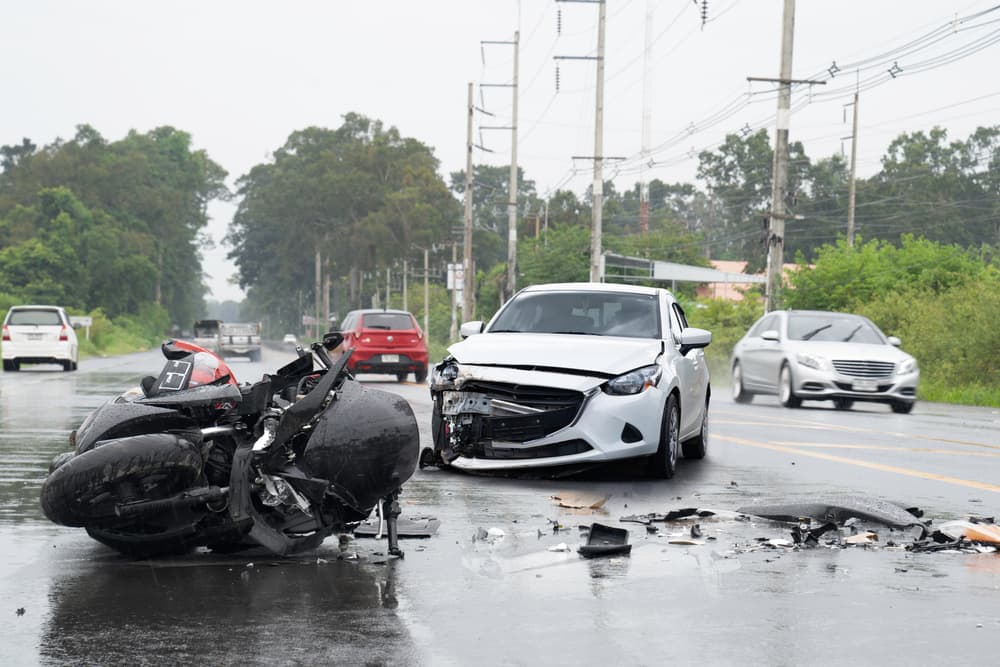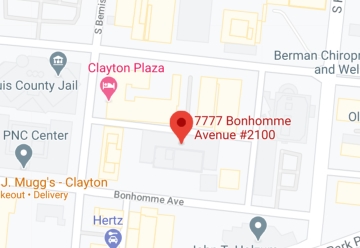
While inclement weather certainly increases the chances of a wreck in St. Louis, it is never an excuse for careless or reckless driving. Motorists need to adjust their behavior to suit the conditions. When they don’t, they can be held liable for the damage they cause. If you’ve been hurt in a wreck that happened during bad weather, our personal injury lawyers can help you pursue compensation for your medical bills, lost wages, and other losses.
The attorneys with Sumner Law Group, LLC, have over a half-century of experience representing injured people in Missouri, helping them get the money they deserve from the people who hurt them. We know how to investigate an accident thoroughly, determine who is liable, and demonstrate persuasively that an accident resulted from negligence rather than simply bad luck. Let us put our knowledge and resources to work for you.
Contact us today for a free consultation with a bad-weather accident lawyer in St. Louis.
St. Louis Roads and the Effects of Bad Weather
Drivers need to be particularly careful in bad weather to avoid a collision. According to the Federal Highway Administration, some ways weather can negatively affect road conditions include:
- Wind speed – High winds can reduce drivers’ visibility, make cars less stable on the road, and obstruct lanes if large objects blow onto the roadway.
- Fog – Fog makes it harder for drivers to see where they are going. However, drivers should not stop in the roadway when driving through fog, as doing so makes a rear-end collision extremely likely. Instead, drivers should slow down and turn on their low-beam headlights to help them navigate. They should never use their high beams in fog, as the water particles can reflect and refract the light, reducing visibility.
- Precipitation (rain, snow, etc.) – Rain and snow can limit drivers’ visibility on the road and make accidents more likely. Rain, snow, and ice also reduce traction and make it harder for drivers to control their vehicles by braking and steering.
- Water on the roadway – If water pools on the road and the lane becomes submerged, cars can hydroplane and spin out of control, potentially causing a collision.
In addition to these direct effects, bad weather can also have secondary effects on traffic patterns. Bad weather often leads to increased travel times and congestion, as drivers must deal with accidents and slower speeds.
What Factors Contribute to Liability for a Weather-Related Car Accident?
While bad weather can make it harder to operate a vehicle safely, drivers are ultimately responsible for how they react to conditions. Some examples of driver negligence that can make them liable for a collision in inclement weather include:
- Driving too fast for road conditions – Drivers should slow down in bad weather to ensure they stay in control of their vehicle. Even if a driver is not going above a posted speed limit, they may be going too fast to keep their car under control.
- Failing to follow at a safe distance behind other cars – Because rain, snow, ice, and other bad weather conditions decrease traction between the tires and the road, drivers should increase their following distances. Drivers who follow other vehicles too closely can be held liable for collisions they cause by skidding or sliding into them.
- Taking a turn too fast on slippery pavement – Drivers who take turns too quickly in slippery road conditions can spin out of control and hit other vehicles.
- Failing to use headlights in weather conditions with poor visibility – Not only will drivers who do not turn on their headlights in poor weather conditions have trouble seeing other cars, but other motorists will have trouble seeing them.
- Hydroplaning – When a vehicle’s tires lose grip on the road surface, it can skid uncontrollably across it, an action known as hydroplaning. Smooth, steady movements are key to avoiding losing control while hydroplaning.
- Impaired, distracted, or drowsy driving – Drivers must be at their mental best when driving in bad weather. Impaired, drowsy, or distracted drivers are more likely to cause a crash due to diminished reflexes, judgment, and perception.
- Failing to obey road signs and traffic signals – Following posted road signs and signals is always important, especially in poor weather conditions. Drivers who ignore signs and signals may miss crucial information that could help them avoid a collision.
Recoverable Damages in a Dangerous Weather Crash
Bad-weather accidents frequently cause severe injuries and extensive property damage. If you file a personal injury claim against a negligent driver after a bad-weather crash, you can demand compensation for:
- Medical expenses related to the crash
- Lost wages
- Reduced future earnings due to a disability
- Pain and suffering
- Emotional distress
- Diminished quality of life due to your injuries
Steps to Take After a Bad-Weather Accident
The things you do after a bad-weather accident can affect your ability to secure the compensation you deserve. Here is what to do after a crash to protect your rights:
- If possible, move your vehicle off the road. Do not block traffic, as this can lead to additional collisions.
- Call 911 to report the crash. Unless you have severe injuries that require immediate treatment, stay at the scene until the police arrive.
- Take pictures of the accident scene, any vehicle damage, and the road conditions at the crash site.
- Ask the other driver for their information, including their name, address, driver’s license number, vehicle registration number, and insurance information.
- Look for nearby eyewitnesses and security cameras.
- See a doctor as soon as possible.
- Save all your medical records and any receipts related to the crash.
- Do not make any posts about the crash on social media.
- Do not speak to insurance companies without talking to a lawyer first.
- Hire a car accident lawyer right away.
Statistics on Bad Weather Accidents in St. Louis
Unsurprisingly, bad weather is a factor in many accidents in Missouri and across the United States. The Federal Highway Administration reports that bad weather was a factor in 21 percent of all vehicle crashes, 19 percent of all crash injuries, and 16 percent of all crash deaths nationwide during a recent 10-year span.
Closer to home, the Missouri State Highway Patrol reports that about 20 percent of crashes statewide in one recent year occurred in cloudy weather conditions. About 9 percent of crashes that year occurred in rainy conditions, while about 3 percent occurred in snowy conditions. Another 3 percent of crashes occurred when temperatures were below freezing.
Call Our St. Louis Bad Weather Car Accident Lawyers
Our St. Louis weather-related car accident lawyers know how to hold negligent drivers accountable and are ready to fight for your rights. Contact the Sumner Law Group, LLC, today for a free consultation.

















